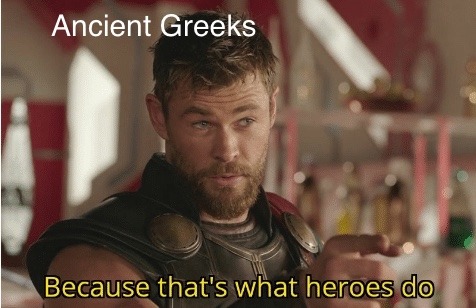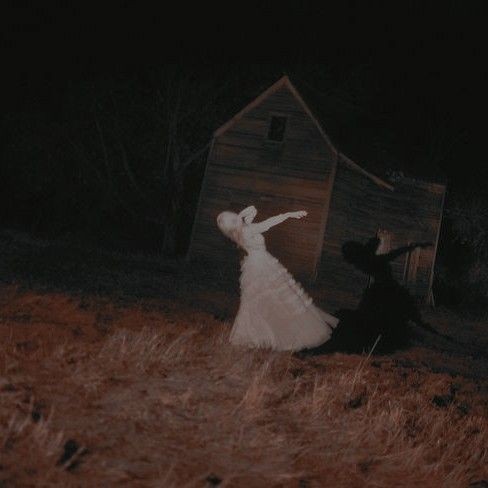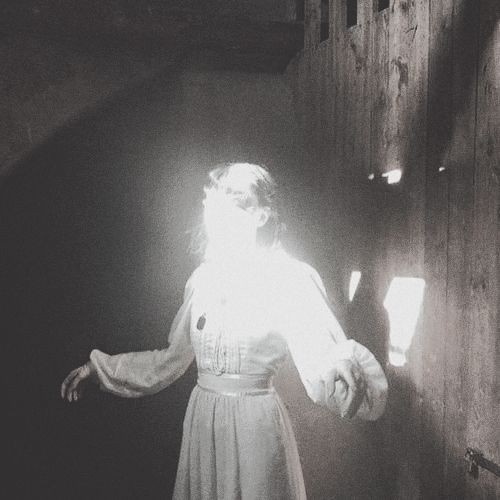#myth retelling
Explore tagged Tumblr posts
Text



YAOLJB.wordpress.com
BE Odysseus in two preview sections of interactive fiction Odyssey retelling
🧿 You Are Odysseus 👁️
Why does Odysseus do what he does? Can you replicate his adventure? Or will you end up somewhere else entirely?
Read/play now!

This has been a labour of love over the last five years. The full text is coming out this year and I am SO excited for you lovely nerds to read it!
You can look forward to:
- A faithful rendition of the Odyssey, but as a second-person narrative
- A novel-length interactive reading experience, as a book, hyperlinked eBook (and possibly future text adventure
- The ability to read as Odysseus, making the same choices as he does in the original poem, or as your version of Odysseus, making the choices you think he should make, or as a completely other version of Odysseus, making... other choices
- Characterisations and literary features directly from and inspired by translations of the original poem
- All your favourite scenarios and episodes directly from the original poem, from Troy (as told by Menelaus and Nestor) to Ithaca
- Original, alternative story elements based on suggestions from the original poem, Epic Cycle, and ancient authors and playwrights
- Many, many different ways in which to die
- Almost as many different ways to succeed (depending on how you qualify success exactly)
- The tiniest bit of teacher humour added, where appropriate. Mostly.
- A website appendix explaining textual choices and background, including a bibliography, further suggested reading list, and a list of the ‘correct' choices to make to correctly re-enact Homer's Odyssey.
Thank you for trying out the preview!
#greek mythology#tagamemnon#greek myth#odyssey#odysseus#greek myth comix#homer#greek myth retellings#greekmythology#Ancient Greece#odyssey retelling#myth retelling#interactive fiction#choose your own ending#choose your own path
59 notes
·
View notes
Text
The Epic Saga: Just A Man
Trigger warning for infanticide.
I want to talk about what an interesting choice it was in Epic's first installment for Odysseus to be the one to kill the infant.
In all versions of the story, the fate of Astyanax, son of Prince Hector, is always the same. He is thrown from the walls of Troy while the city is sacked. What varies from telling to telling is who does the deed, and it's usually between two people: Odysseus and Neoptolemus.
Most modern retellings make Neoptolemus the villain in this story, or they'll leave out this part entirely, because in the eyes of today's society, the senseless murder of a helpless infant is something only a villain would do.
Who's Odysseus? He's the man who won the Trojan War by engineering the idea behind the Trojan Horse, he's the guy who took ten years to sail home, he's the main character of The Odyssey. Odysseus is a hero. And heroes don't kill infants.
Who's Neoptolemus? He's forgettable. He didn't go on any heroic quests like Herakles or Perseus. He didn't slay any noteworthy monsters. Neoptolemus' biggest claim to fame are three things: He's the son of Achilles, he clubs King Priam to death in the sacking of Troy, and in some versions, he kills Astyanax. (He also enslaved Astyanax's mother.)
From the lens of the Ancient Greeks, a hero wasn't an upstanding guy who did the right thing. A hero was the guy who fought for what he wanted and did horrible things to his enemy in the process.

In the context of modern society, it's no wonder why the dubious credit of Astyanax's death goes to Neoptolemus. When that's the only real claim to fame he has, of course he's going to be a villain. We can't be having heroes killing babies because that's insane.
So let me tell you that when I first listened to The Horse and The Infant and I realized it was Odysseus who was committing the deed, that took me so off guard and I had to pause the song just to tell my poor sister how fucking crazy that is. I rarely saw this version. I mean, I understand the reasoning; it's setting up Odysseus' guilty conscious that'll plague him for the remainder of the musical. It's the flawed hero trope, which is a far cry from the brutality of the original myths.
And that in itself is testament of how mythologies have evolved over the centuries. It's why we have different variations of the myth in the first place. Societal views and values change and the stories told adapt accordingly.
Did Hades kidnap Persephone or did she go willingly to escape Demeter, her overbearing mother? Both versions are correct. All versions are correct. We cannot look for something as narrow-minded as a 'canon' version of mythology because mythology is a jumble of headcanons about the same basic concept thrown together by countless storytellers over literal centuries of storytelling.
In The Horse and The Infant, Zeus directly warns Odysseus that if Astyanax lives, he will take vengeance on him and his homeland. And after what the Greeks did to Troy, slaying the men, enslaving the women, and leaving the city in ruins, Odysseus is one of many Greek kings who have a lot to answer for.
Is Odysseus heroic for protecting his family by killing Astyanax because now the infant prince won't grow up to take vengeance?
Is Odysseus a flawed hero who carries the shame of his sins with him?
Is the deed committed by Neoptolemus and Odysseus goes home with his honor unsullied?
It all depends on interpretation. You can choose one that reflects a harsh history or you can pick the one that's been adapted to suit modern values. You don't even have to pick. You can appreciate them all for what they are.
And Epic: The Musical came out swinging.
#epic the musical#odysseus#the odyssey#the iliad#the horse and the infant#neoptolemus#astyanax#the sack of troy#greek mythology#myth retelling#mythology evolution
156 notes
·
View notes
Note
More minotaur asterion pleeeeeease! They are so cute together istg
They're engaged aren't they 😈 their parents just arranged it I'm guessing
You would think, wouldn’t you? 🤭
Nobleman Minotaur Part Four
You leave Asterion’s dwelling in a haze, glancing over your shoulder to see the immoral talking to her son before the door shuts behind you. She said to go talk to your father, so you obey. Your head is too full of thoughts of Astreion’s lips being so close to yours for there to be thoughts of much else.
In almost a haze, you make your way through the garden towards the palace. In the sitting room, your father is sitting, obviously waiting for you. “Y/N. I’m glad you’re here,” he smiled at you as he shut the book he had been reading.
“Pasiphae told me to come see you,” you managed to say, eyes drawn to the large amount of wrapped presents on the table beside your father. You knew what they were. Gifts to butter you up so noblemen across the land could request your hand. You’d never bothered to open a single one. “She said I would want to hear what the two of you discussed.”
Your father chuckled, setting the book to the side and gesturing for you to sit beside him. You do so, leaning your head against his shoulder. It’s comforting. It reminds you of being a child.
“She had told me that she had a vision of you getting married by next year’s end,” your father said, making you still.
“Next year’s end?” you repeated, drawing away from him. “So soon?”
“I know that it’s soon, but a Goddess’ visions are rarely wrong,” your father said as he patted your back.
Your heart skipped a beat as you pulled away from him, your eyes hesitantly raising to meet his. “Did she… see who it was?”
Your father shook his head, a frown steeping his face. “No. Why? Did you have someone in mind?” You shrugged, face flushing brightly. “It seems like you might be holding something back.”
“Well, I’m not sure if you’d approve,” you hesitantly say, tugging at your skirt.
“It’s no matter. Lady Pasiphae told me she saw how the suitor would win your heart and your hand,” your father said almost smugly, like it was a game and he was winning.
This time, it was you who had a frown steeped into your face. “ ‘Win’?”
“Yes, child. Acts of bravery and strength, so that way you might have the protection of both the Gods and man.”
You nodded, a lump forming in your throat. You knew that you didn’t have a choice. Not really. Not only were you his eldest child, but the only daughter. You were not just an heir to the throne, but the one chance he might get at combining territories, or making alliances. You felt foolish. Of course you couldn’t have just blurted out who you wanted to be with. Even your father, kind as he was, wasn’t blind nor stupid. He knew how a kingdom with a monster as the king would look.
“Okay,” you whispered, your voice tight and strained, but he didn’t seem to notice.
“I’ll get everything put together. The tournaments will start by next month’s end.” Your father sounded so proud when he announced this, as if this was something you should want. Something you should be excited for. “Every eligible man in the Kingdom will come to compete for your man.”
“Every… bachelor?” you asked, eyes lighting up as you thought of how you could tell Aestrion about the tournament. Your heart skipped a beat at the idea of how easy it would be for him to wipe the floor with any other contestant.
“That’s what I said, isn’t it?” your father laughed, picking his book back up as he went to stand. “Take a look through the gifts. I want to know truly if there’s anyone that you’re interested in. While the Goddess say the tournament winner would win your hand, maybe the acts of bravery and strength weren’t in the tournament. Maybe he’s a soldier, or a General, even.”
You nodded along, contemplating. The Aestrion you knew had never shown strength. He was a soft, gentle man. Of course, you had no knowledge of his past, but still…
“Alright Father. I’ll look at the gifts,” you agree, mind racing. Wondering how you’ll be able to get him to agree to such a thing, or if he even wanted to.
Like this story? Support me on Ko-fi ☕️ ❤️
#nobleman minotaur#minotaur husband#minotaur fluff#minotaur mate#Minotaurs#Minotaur#writers on tumblr#writing#author#fantasy romance#monster lover#monster romance#monster fucker#monster fuqqer#fantasy smut#monster x human#minotaur x reader#minotaur x human#minotaur x you#greek myth retellings#greek myths#greek gods#greek mythology#mythology romance#mythology retelling#myth retelling#myth#mythical creatures#anon asks#send asks
47 notes
·
View notes
Text
Trygve x Loki fanart!!
I recently received some lovely fanart of my interpretation of Loki and Trygve (my interpretation of Loki's potential mortal farmer lover from the Lokasenna) by the amazing @clusterpuppy !!

Close ups:


Tysm for the fanart of these two!! They look so cute in your style!! <33
#norse mythology#loki#loki x farmer#mythology oc#norse mythology art#fanart#Thank you for the fanart!!#myth retelling
30 notes
·
View notes
Text
Mythology headcanon thing?
When Daedalus and Icarus are imprisoned Daedalus is SURE he can make the wings and fly them out. But it's in the night that a shadow ridden god appears to Icarus, telling him his father will never escape the tower. Icarus begs for an answer on how he can ensure his father's escape...
He's told only by the sacrifice of his own life. He'll be held in high regard in the Underworld if he sacrifices himself for his father's escape. But if Icarus should choose to not die, his father and him both will be transported back to the tower, doomed to fail again and again.
Icarus flies to near the sun. Not because he is stupid. But because he has been told by a god this MUST be his sacrifice for freedom. And the god didn't lie. Daedalus lives on and is never returned to the tower. Understanding that days horrible events fully when he enters the underworld and his son explains the vision he received.
#icarus#daedalus#greek gods#greek myth retellings#greek mythology#story of Icarus#gods#myth retelling#headcanon
20 notes
·
View notes
Text
Love had indeed come armed to the teeth with an envoy brandishing a hate-infused sword its haft carved in cruelty
Gerður Kristný, Bloodhoof
#Gerdur Kristny#Bloodhoof#love#love quotes#dangerous love#sword#cruelty#Icelandic literature#Norse mythology#poetry#poetry quotes#myth retelling#quotes#quotes blog#literary quotes#literature quotes#literature#book quotes#books#words#text
41 notes
·
View notes
Text

He showed me his scars, and in return he let me pretend I had none. — Madeline Miller's 'Circe'
16 notes
·
View notes
Text
I’m gonna keep promoting:
My Norse Myth inspired story about Loki & Sigyn is now published by The Mythic Circle, in the latest issue, #46!
Thank you to all of you for supporting the magazine and me! 🥰
Happy Reading!!! 💚✨

#the mythic circle#norse mythology#myths#myth retelling#loki x sigyn#Loki#Sigyn#god of mischief#published author#authors of tumblr#reimagining
21 notes
·
View notes
Note
Is there a real difference between something being a reimagining of Greek myths and something being inspired by it?
I mean, it's a difference that's kind of subjective IMO but the way I personally see it, it comes down to what the story itself is trying to be. Is it trying to be a retelling, or is it trying to be its own story that just happens to take elements from the myths for the fun of it?
A myth retelling will typically be doing just that, retelling a mythical story with its characters with maybe some aesthetic changes, artistic liberties, or tweaks to fit a new generation. Example: Stray Gods, Hades, Hadestown, Lore Olympus, etc. All these stories are retelling myths and tales while putting more modern or subversive twists on them. Hadestown may feature a version of the Underworld that's built on coal mines, but it's still the story of Orpheus and Eurydice. Hades may feature a version of Hades and Persephone who genuinely fell in love (Persephone was born to Demeter and a mortal man instead of Zeus which also removes the incest, and Persephone genuinely wanted to leave Olympus and saw marrying Hades as her way out), but they still gave Demeter her affiliations with winter and grieving the loss of her daughter.
Something that's simply myth inspired isn't necessarily trying to be accurate to the myths or retell them, they're just yoinking elements out of myths either directly or indirectly for the sake of fun and creativity. A recent example is Attack on Titan which is clearly referencing a lot of Norse mythology by the end with Ymir. Though an even bigger example of this is JRPG's, a lot of them tend to reference Greek and Norse myth in obvious or subtle ways, but aren't necessarily retelling those stories. Persona 3 uses a lot of Greek myth as the foundation for its story. The Ascians in Final Fantasy XIV go by Greek myth aliases such as Hermes and Hades, while there are raids in the game with Greek naming conventions (there's literally a raid boss in the newest set of Asphodelos raids named "Athena"). Tales of Symphonia is WWII meets Norse mythology, featuring subplots that tackle deep topics like discrimination, segregation and genocide (the "human ranches" are literally concentration camps) while also taking artistic inspiration from the Norse myths featuring the Great Kharlan Tree (the tree of life, Yggdrasil) and even the final boss' name is Yggdrasil, in the game's final cutscene Lloyd is given the opportunity to name the new reborn tree and while the audio fades out before you can hear what he names it, when you learn of Norse myth and how it inspired the game you just know he named it Yggdrasil (unfortunately they played it safer with the name "World Tree" in the game's sequel Dawn of the New World, but we don't talk about DotNW lmao). There are also a lot of religious allegories in JRPG's, particularly with Christianity, but that's another topic.
Point is, something that's simply taking inspiration from Greek myth or other mythologies isn't necessarily trying to retell those stories directly or even at all. Sometimes a piece of work is simply referencing them or enjoys the naming conventions or messaging of those original stories that it makes for a good parallel.
Not every story inspired by mythologies are attempting to retell them, but every retelling is inspired by the mythologies upon which they're based.
63 notes
·
View notes
Text
The Way to the Heart (Isn't Through the Stomach, Shut Up) - Chapter 6/7

Everyone in Mythos Incorporated knows Hera Juno and Zeus Jupiter absolutely can't stand each other. Strong-willed, argumentative and not used to being challenged, sparks fly whenever the Head of HR and the Senior Executive cross paths (and not how Taylor Swift meant it, no matter what the office betting pool would have you believe). When Hera receives an anonymous delivery of her favorite dessert just two days before Christmas, she dismisses the idea of a secret admirer. After all, such things only happen in movies, and workplace romances in real life are a recipe for disaster. But when the mysterious deliveries continue year after year and her benefactor refuses to reveal themselves, Hera has to face facts: someone in the office is behind this. And she's determined to find out who. The third Modern Myths Saga installment, featuring Zeus and Hera as office rivals, with a dash of sugar and cream.
You can read Chapter Six "The Nutcracker One" HERE
#hera#zeus#hera x zeus#greek myths#modern au#myth retelling#the modern myths saga#greek gods#olympian gods#ancient greek religion and lore#mythology inspired#writers on tumblr#cerseimikaelson
7 notes
·
View notes
Text









Every book I read in 2023
Comfort Me With Apples by Catherynne M. Valente
★★★★★ / 5
#litedit#comfort me with apples#catherynne m. valente#horroredit#mythedit#myth retelling#religious horror#horror booklr#booktok#booklr#bookstagram#book moodboard#moodboard#horror aes#aes#2023 books*#*bookshelf
88 notes
·
View notes
Text
🌞 Aktis Aeliou, or the Machine of Margot's Destruction by Natalia Theodoridou

Spoilers ahead:
Okay! Alright! I did not know what to expect of this short story but it's now one of my favorite alluding to Apollo, it seems.
The web of meanings starts with the name: ἀκτὶς ἀελίου (light/ray of the Sun) is the beginning of the chorus in Sophocles' Antigone, line 100. This line is quoted by — supposedly — Apollo in Greek in this text. This is the chorus after Ismene and Antigone (in the play) talk about Antigone's decision which Ismene considers poor judgement. The light of the Sun is a short moment of respite before the tragedy.
Apollo is a tragic character in this story. It's about the destined tragedy of loving a God. To me, the main heroine is a total sum of Apollo's women while the total sum of Apollo's men are the distant memory. The major meaning, to me, is in the line, "if I love you, you shall die; do you want to die?"
10 notes
·
View notes
Text
Icarus making sure to always save the best of anything he has to give as an offering to Apollo. He burns everything in a golden bowl. Icarus begging Daedalus to craft him a lyre so he can learn to play it because it makes him feel closer to Apollo. Icarus trying to raise bees so he always has fresh honey to offer Apollo.
Apollo receiving all these offerings and getting bullied by Artemis because he can’t stop blushing because what is this human boy doing?? Fuck it’s so cute though and he starts lingering above where they’re being held bc he wants to be closer to him for a second.
#fantasy romance#writers on tumblr#writing#author#myth#mythology retelling#myth retelling#mythology#mythology and folklore#greek mythology#my writing#my thoughts#Icarus#Icarus x Apollo#Apollo#ancient greek#greek posts#greek gods
306 notes
·
View notes
Text
I realized I never really went into too much depth about my au/retelling of Myth! Sigyn. But I feel like talking about her, so here I go infodumping. I ended up making her more terrifying. But not in a "badass valkyrie" type of way. More in a "bloodthirsty, slightly murdery goddess" sort of way. She likes to wager sides of battle with either Odin,Freyja, Tyr, or even some valkyries. Whenever she wins, she revels in her victory. She's not the kindest goddess, either at least to most of the other gods. Odin isn't too fond of her.
When it comes to her relationship with Loki, they met when Loki witnessed Sigyn win a wager against Odin. Loki was impressed by Sigyn's cunning and ability to flaunt her victory in front of someone like the All-Father. When the two got to talking, Sigyn liked the fact that she felt Loki was on the same playing field as her. In their own individual ways, they are both kinda assholes. Though Loki's sheingains, while often getting the Aesir in trouble, are mostly harmless and sometimes helpful. The same can't really be said for Sigyn she often gets in a lot of trouble herself(though she always finds a way out of her sheingains). But they like that about eachother, neither of them are perfect.
However, she is still loyal to a fault, at least to those she can trust. She isn't stupid either she will take revenge out on those who she feels have wronged her or her loved ones. She cares, but sometimes that can be dangerous.
Anyways, thank you for listening to my ramblings.
#norse mythology#sigyn#logyn#loki x sigyn#ramblings#myth retelling#myth au#sigyn retelling#myth!sigyn
21 notes
·
View notes
Text
o Icarus






a comic about the thrill of choosing the fall.
12 notes
·
View notes
Text
"There is a difference between understanding and forgiveness. It's possible to have one without the other."
Genevieve Gornichec, The Witch's Heart
#Genevieve Gornichec#The Witch's Heart#understanding#forgiveness#American literature#myth retelling#Norse mythology#quotes#quotes blog#literary quotes#literature quotes#literature#book quotes#books#words#text
11 notes
·
View notes